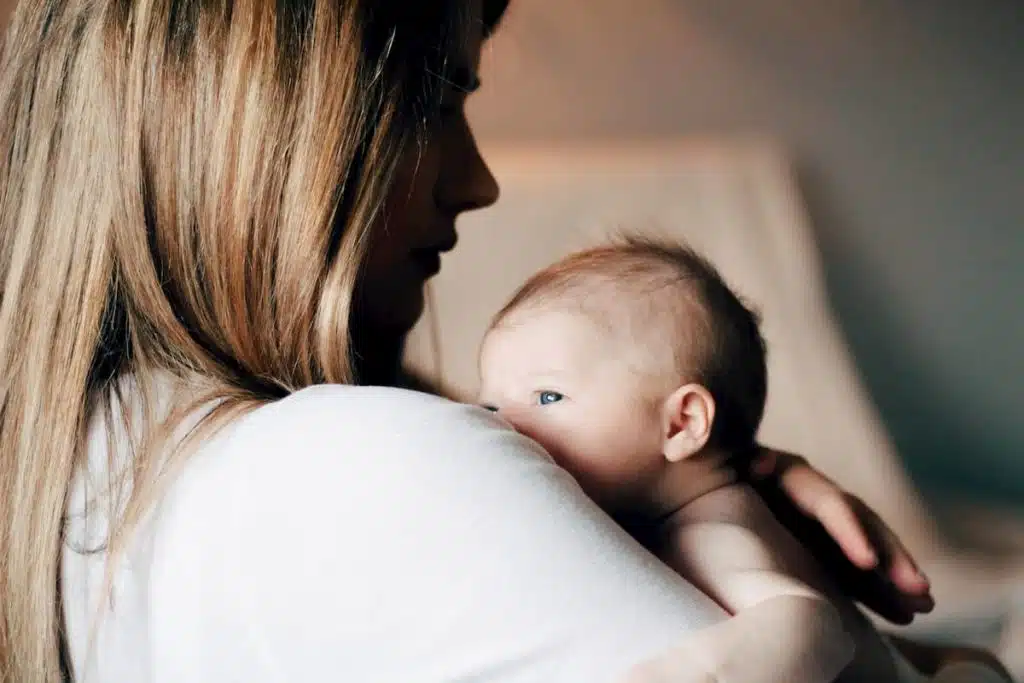The COVID-19 pandemic and restrictions to control it are still having a significant impact on babies, their families and the services that support them, charities have warned.

Best Beginnings, Home-Start UK and the Parent-Infant Foundation have been working together since spring 2020 to highlight the impact of the pandemic on pregnant women, new babies and their families. The charities say the government’s recent focus on, and investment in, the first 1001 days through their Best Start for Life vision and funding is very welcome.
However, the organisations warn of a “baby blindspot” which remains in COVID-19 recovery efforts and a shortage of funding for voluntary sector organisations and core health visiting services to offer the level of support required to meet families’ needs.
“Without urgent action to secure recovery, we fear that the pandemic will leave permanent scars on the provision of support for babies and young children. The impact of new initiatives and policies will be limited if services around the country have not recovered from the pandemic, let alone had the opportunity to build back better,” the charities state.
The charities published ‘Babies in Lockdown’ report in August 2020 which shared insights into the impact that COVID-19 was having on babies and their parents of all backgrounds from across the UK. The research found that COVID-19 and the lockdown affected parents, babies and the services that support them in diverse ways.
- Some parents struggled enormously, while others thrived.
- Some services were badly affected, others did more than ever.
- There were huge disparities between different families and communities.
- The pandemic exacerbated underlying inequalities with families that were already facing greater adversity often being hardest hit by the pandemic.
In Autumn 2021, the charities went back to some of the parents who had participated in the initial research to understand in-depth how the pandemic continues to impact them. A brief survey was also distributed to professionals and volunteers who work with babies and their families.
Key findings from the latest research found:
- Many parents in our sample reported that young children seem to be adapting well
In the original research, some parents were concerned that the lockdown would impact their babies’ social and emotional development. However, the small group of parents involved in the in-depth follow-up research mainly reported that their children were enjoying socialising after the lockdown. Many others have had very different experience and the charities remain deeply concerned about the impact of the lockdowns on the development of young children exposed to the greatest adversity during the pandemic.
- Families are still feeling the benefits of time together
One of the plus sides of the pandemic was families spending more time together and the charities hoped that some of the family-orientated habits established during lockdown were continuing.
- Parents’ mental health
The initial research highlighted the impact of the pandemic and lockdown on parents’ mental health. Almost 9 in 10 parents were more anxious as a result of COVID-19 and the lockdown, with families from Black and Asian communities, young parents and those on low incomes reporting higher levels of anxiety. These feelings were still evident in the latest research as the parents involved reported high levels of anxiety specifically about the impact of COVID-19.
- Families are not able to access all the support they need from health visiting services and GPs.
Families reported that they are still struggling to access care, particularly from universal health care professionals like GPs and health visitors. Many routine contacts with health visitors have been missed or delayed resulting in families feeling alone and let down. Parents told us that many services, including health visiting and GPs remain online which made interactions difficult. Families wanted someone to see their babies in order to provide them with the reassurance that they, as parents, wanted.
- Digital support has an important role to play but there are limitations of online and phone-based service delivery.
There are clear benefits to some forms of digital service delivery. However, many different services that traditionally support families face-to-face in pregnancy and the earliest years have become remote during the pandemic and continue to retain some element of online or phone-based service delivery. This can limit opportunities to deliver services effectively to all families, and to identify and assess concerns.
- Parents are struggling to access baby and toddler groups.
Several parents told us baby and toddler groups are not operating at all or are not operating as they normally would. This was backed by the survey of professionals which found that just 12% of respondents told us that baby and toddler groups in their area were “back to normal”. The absence and/or inaccessibility of community baby and toddler groups is likely to continue to exacerbate feelings of loneliness and isolation that have been reported over the pandemic.
The three charities are urging the government to support local authorities to invest in and rebuild health visiting services.
Babies and the services that support them must be included in COVID-19 recovery policy and investment at a national and local level. This must include investment in community and voluntary sector support.
An evidence-based approach must be taken to ensure the appropriate use of digital and phone-based service delivery, and investment in relational, face-to-face support where this is needed.
“This research shows that, although the worst of the pandemic restrictions may be over, COVID-19 and the measures introduced to control it are still having an impact on babies, their families and the services that support them. We recommend action and investment for families across the UK to ensure that babies, families and the services that work with them can recover from the pandemic,” the report concluded.

